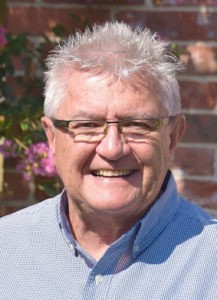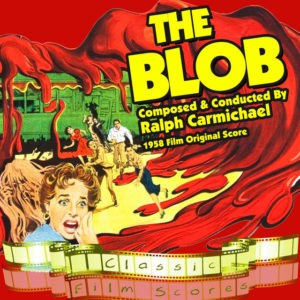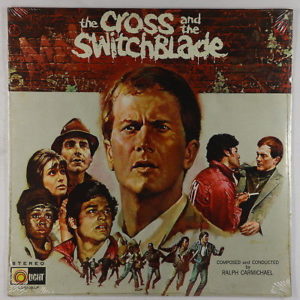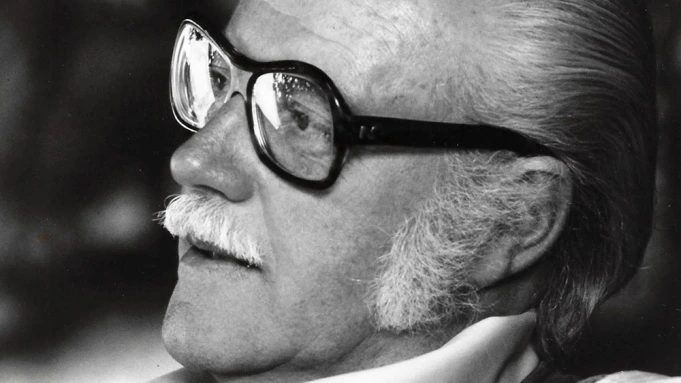It has been an unusual, loss-filled few weeks in the world of church music. One by one we have seen the obituaries of some of the major players come across our desks.
A few weeks ago, long-retired professor of music at Southern Baptist Theological Seminary Phillip Landgrave passed away. His contributions beyond the classroom were some songs we all know and that have been included in various hymnals and songbooks for years: “Just as I Am” set to a fresh tune and “Because I Have Been Given Much” being the most familiar to most of us. His youth musical PURPOSE was pivotal in the lives of many a young musician seeking a clear calling to ministry. I was one of those.

R.G. Huff
Then one of the premier arrangers of handbell music, Cynthia Dobrinski, died. Nary a handbell choir in the country has foregone her excellent settings of familiar tunes and creative newly composed masterpieces. Everyone is already questioning, “Who will ever take her place?”
And just before we could truly get over those two losses, we got the news on Oct. 18 that Ralph Carmichael, at age 94, had died in California. “Say it isn’t so!” I wanted to shout to anyone who might listen.
Called the “father of contemporary church music,” Carmichael left an unusually large imprint on the history book of many kinds of music from the second half of the 20th century until today. But for those of us whose lives have been ensconced in the music of the church, he is a towering, positive figure — one to be honored and remembered for the too-many-to-recount contributions he made to the ever-expanding landscape of what we sing and play in our places of worship and fellowship.
His obituary recounted many of his accomplishments, but near the end, it gave this summation: “Ralph enjoyed his life to the fullest. He was passionate about the music that flowed from his soul and created it as the consummate professional. … He laughed easily, loved deeply, enjoyed a good joke or prank, and charmed anyone who came across his path. Undergirding it all was his abiding faith in his Lord Jesus Christ.”
 While most of us in the church equate his name with progressive sacred songs and musicals, the banner on the Variety page on Oct. 20, read, “Ralph Carmichael, Composer of ‘The Blob,’ ‘My Mother the Car,’ Dies at 94.” The attendant article noted his work with Nat King Cole, Ella Fitzgerald and Roger Williams. It mentions how he wrote music for the TV Show I Love Lucy and that he wrote and conducted arrangements for Rosemary Clooney, Bing Crosby and Peggy Lee. Midway in the article he is cited for his focus on creating religious music in the 1960s as the composer of more than 300 gospel songs.
While most of us in the church equate his name with progressive sacred songs and musicals, the banner on the Variety page on Oct. 20, read, “Ralph Carmichael, Composer of ‘The Blob,’ ‘My Mother the Car,’ Dies at 94.” The attendant article noted his work with Nat King Cole, Ella Fitzgerald and Roger Williams. It mentions how he wrote music for the TV Show I Love Lucy and that he wrote and conducted arrangements for Rosemary Clooney, Bing Crosby and Peggy Lee. Midway in the article he is cited for his focus on creating religious music in the 1960s as the composer of more than 300 gospel songs.
 Among those 300 “gospel songs” are some we all know, like He’s Everything to Me, The Savior Is Waiting, and There Is a Quiet Place. He teamed up with another recently departed great, Kurt Kaiser, to create the youth musicals Tell It Like It Is, Natural High, and I’m Here, God’s Here. (I did all three of these musicals with my youth choirs in Tennessee before heading to seminary. And I still hum tunes from each of them.)
Among those 300 “gospel songs” are some we all know, like He’s Everything to Me, The Savior Is Waiting, and There Is a Quiet Place. He teamed up with another recently departed great, Kurt Kaiser, to create the youth musicals Tell It Like It Is, Natural High, and I’m Here, God’s Here. (I did all three of these musicals with my youth choirs in Tennessee before heading to seminary. And I still hum tunes from each of them.)
His work with Billy Graham and Cliff Barrows to widen the audience of the crusades and the evangelistic ministry by involving a younger generation led in part to Carmichael’s scoring the music for the films The Cross and the Switchblade, The Restless Ones, and For Pete’s Sake, among others.
The son of an Assemblies of God pastor, Carmichael was a near-prodigy on the violin, and his gift of perfect pitch made it possible for him to arrange music with creative jazz chords away from the keyboard. When he arrived at Southern California Bible College (now Vanguard University), his intention was to follow his father into a pulpit ministry. His musical gifts were blossoming and being noticed. He soon was studying music, later becoming the head of the school’s music department in his early 20s.
According to an article in Christianity Today, Carmichael never was all that concerned with denominational choices, serving first in a Baptist church, then moving into others along the way, saying, “I would work for anybody who could afford me, regardless of their denominational affiliation, so long as they named the name of Christ.”
 He also eschewed the title “the father of contemporary Christian music,” as he thought he simply brought some more interesting rhythms, harmonies and interest to the songs of the church. “I want neither credit nor blame for creating today’s musical forms,” he once told Christianity Today. “I ask only for guidance to know how to use them in good taste to reach ‘now’ people with a message that never changes.”
He also eschewed the title “the father of contemporary Christian music,” as he thought he simply brought some more interesting rhythms, harmonies and interest to the songs of the church. “I want neither credit nor blame for creating today’s musical forms,” he once told Christianity Today. “I ask only for guidance to know how to use them in good taste to reach ‘now’ people with a message that never changes.”
That gracious, kind gentleman who gave attention to good taste had a lasting affect on so many of us who followed the path into church music. One of us was Dick Tunney, who recalled his first meeting with Ralph in preparation for “The Young Messiah” tour in the early 1990s. Dick was going ahead into 12 different cities to prepare the choirs before Carmichael came in to conduct the performances.
Here’s what Tunney says: “As our meeting began, I was able to tell Ralph that his pioneering songwriting and arranging in the ’60s with youth musicals and such had a big impact on my musical life. After I thanked him for those groundbreaking works, I told him how grateful I was that his early work was the reason I was able to have a vocation in the world of contemporary Christian music. He graciously thanked me, took off his glasses and laid them on the table, got a little misty and said, ‘Well, you made my day.’ A gracious gentleman and a fantastic musician.”
This towering figure with the bushy white mustache, the mutton chops, the full head of white hair and the over-sized black-rimmed glasses who had worked with the greats of Hollywood and Nashville, had written for and conducted the London Symphony Orchestra, created a “Hymns from the Heart” album with Rosemary Clooney in 1963, won a Dove Award in 1994 — this man of great talent and great faith left us with these words to one of his great songs for church:
All my life, through the good or bad of life
Whether I should gain or lose, still I choose
To live my life, every moment all for thee
Walking oh so close to thee
While I’m learning every day come what may
To trust in thee
Take away the doubt that hides thy perfect will
Give me faith instead and with thy Spirit fill
Then all my days, be the guardian of my ways
And I’ll know the glory of all thy Love for all my days.
R.G. Huff is a hymn writer and musician, retired after 40-plus years in local church ministry. An adjunct professor in the School of Fine Arts at Dallas Baptist University, he is the author of the devotional book Hymn Lines.
Notes:
All My Life, by Ralph Carmichael, © Copyright 1966 by LEXICON MUSIC, INC.

